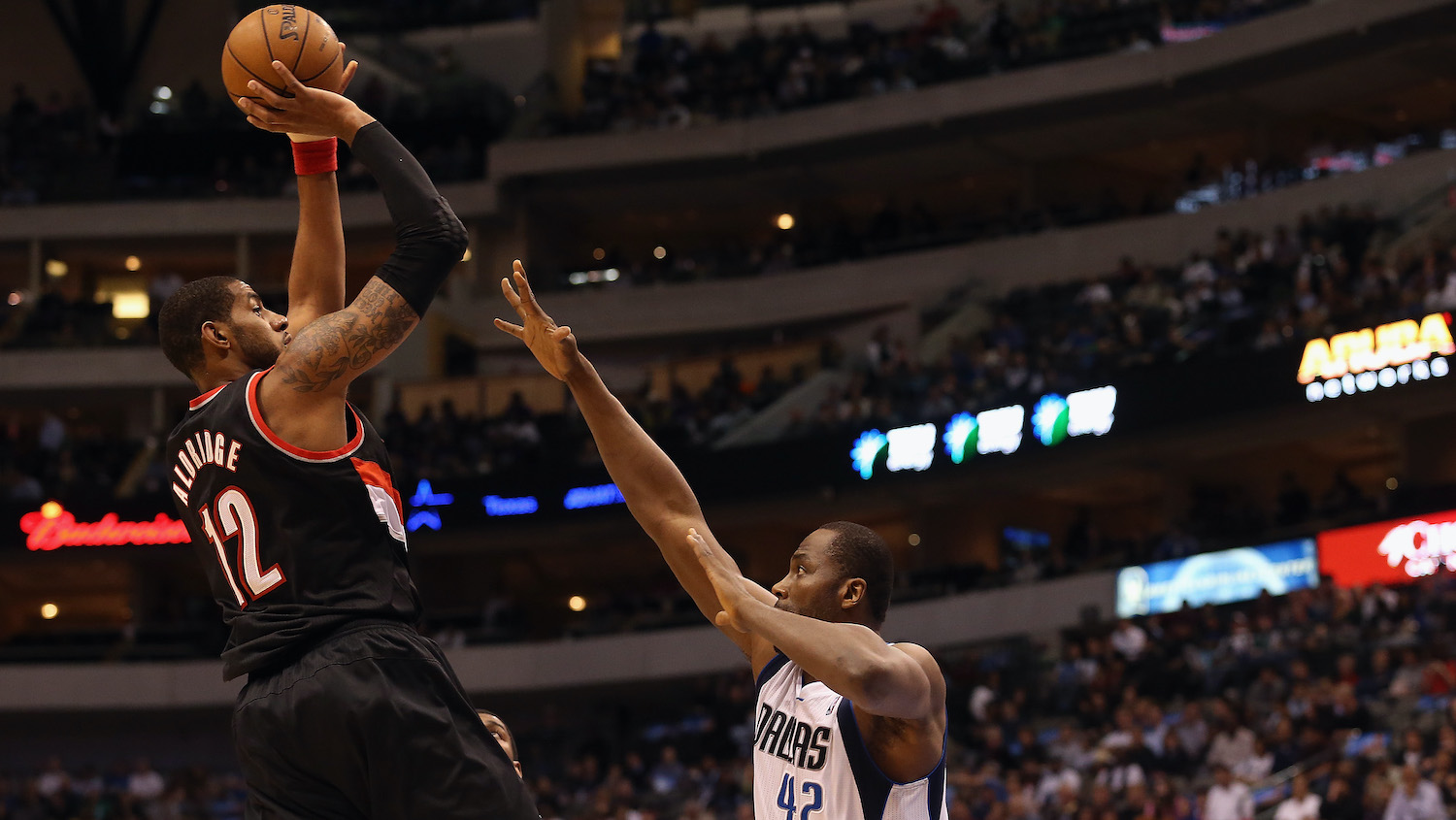LaMarcus Aldridge abruptly announced his retirement from the NBA on Thursday morning, calling it a career due to an irregular heartbeat. Through the course of Aldridge's 15 seasons—nine with Portland, six with San Antonio, and finally, 130 minutes with Brooklyn—he was one of the most consistent players in the entire NBA (only he and LeBron James managed 1,000 or more points over the last 13 full seasons), and his legacy will probably be one of a very good player who neared the mountaintop with several great yet flawed teams without ever playing in an NBA Finals.
That's fine and true, and that scary, doomed Portland team with Brandon Roy and Greg Oden will go down as one of the saddest injury-abridged squads in recent memory, though Aldridge's career arc is by no means a tragic story. He made a shitload of all-star teams and played in nine postseasons, and he basically had Chris Webber's career, which rules. That he came close with so many teams is undoubtedly fascinating, but more interesting than what he didn't accomplish is how he accomplished what he did. I am talking, of course, about his untouchable fadeaway jumper.
Aldridge's fadeaway was one of the most consistent single moves of the past decade-and-a-half in the NBA. There's something soothing about a player who achieves a high level of success with a signature move, a fallback option that is unstoppable even when defenders know it's coming. Like Arjen Robben cutting the ball onto his left foot or Mariano Rivera throwing a cutter, there's a comfort in Aldridge's fadeaway. He would catch the ball on the left block, create a smidge of separation, usually by driving right, then he'd spin quickly, keeping his body aligned as he leaned back to create the space to fire a quick midrange jumper. The only way to stop it was to cheat, and he was crafty enough to go under when defenders overplayed him. Think of it as a less flamboyant cousin to Dirk Nowitzki's trademark 45-degree leaner. Not coincidentally, Aldridge credits Dirk for the inspiration.
The basketball metagame through Aldridge's prime was defined by the rapid extinction of the mid-range jumper, the exact sort of shot that Aldridge made his name with, though it never really bothered him. He took more long two-pointers than threes in every single season of his career, defying basketball orthodoxy. It may seem like the product of stubbornness, but Aldridge was simply good enough at hitting his shot that it still made mathematical sense. The end of the San Antonio Spurs' run as an elite team was defined by an unlikely embrace of the mid-range shot, and they excelled because Kawhi Leonard and Aldridge could consistently manufacture and knock down enough open ones to make it work. You have to respect the consistency, even if you're bored by it. No team wins 67 games on a fluke.
The insights Aldridge gave in an old ESPN story about his signature shot are all fairly superficial ("Good footwork and balance are very important here") because, really, what is there to say? He was big enough and coordinated enough to make the fadeaway his own, and he deployed it with occasionally terrifying effectiveness. Perhaps his best game in a Blazer uniform was Game 1 of a 2014 first-round series with the Rockets, in which he dropped a franchise-record 46 points and added 18 rebounds, torturing Dwight Howard and poor Omer Asik.
That one is up there with a 56-point gem he put together against the Thunder two seasons ago.
And just like that, he is out of the league. Few people were probably under the illusion that Aldridge would have been a make-or-break player for Brooklyn's title chase, though it is a real bummer that he won't get to see through his best chance at earning a ring and playing high-leverage playoff minutes for a Finals favorite. He'll still go down in NBA history as a critical player from this era, and his odds of making the Hall of Fame, per Basketball Reference, sit at exactly 50 percent. There's something comfortingly harmonious in that, and getting to that level by making a typically unremarkable shot his own is a real tribute to Aldridge's mastery.






